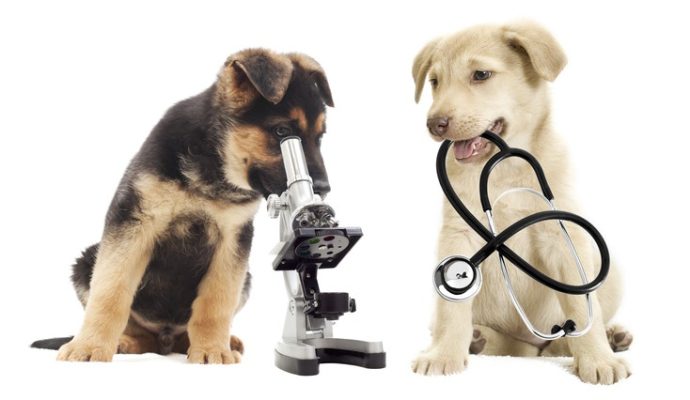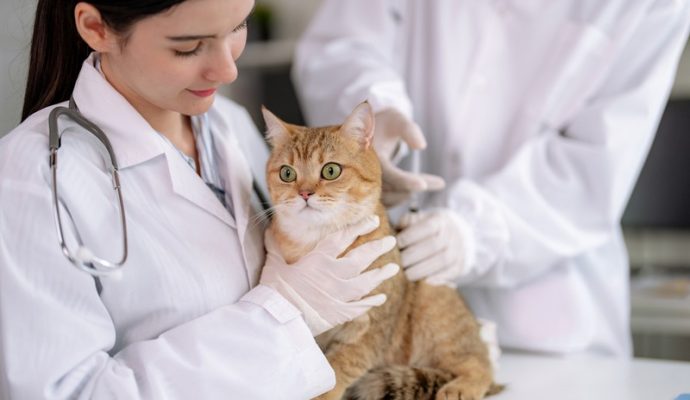When it comes to our furry friends, we all want the best for them. We provide them with love, comfort, and care, but sometimes, what they need most is something we can’t see with the naked eye – regular wellness exams. These check-ups play a crucial role in detecting hidden conditions that could affect their quality of life. Let’s sit down and talk about how these exams work and why they’re so vital for our pets’ health.
The Role of Wellness Exams in Pet Health
We take our pets to the vet for many reasons: vaccinations when they’re acting strangely or if they’ve had an accident. But what about when they seem perfectly healthy? That’s where wellness exams come in. Think of them as routine check-ups that can catch problems before they become serious.
What Exactly is a Wellness Exam?
A wellness exam is a head-to-tail assessment of your pet’s health. It’s an opportunity for your vet to detect any potential health issues before they become evident. These exams typically include:
-
A thorough physical inspection
-
Weight checks and body condition scoring
-
Dental assessment
-
Listening to the heart and lungs
-
Palpating the abdomen and other areas for abnormalities
-
Checking the eyes, ears, and skin for issues
-
Blood tests, urinalysis, and fecal exams to check for diseases that aren’t visible
The Benefits of Routine Checks
Scheduling regular wellness exams for your pet comes with a host of benefits:
-
Early Detection: Some diseases show subtle signs early on or even remain silent until they’re advanced. Catching these early can mean a better prognosis.
-
Prevention: Vaccinations, parasite control, and advice on diet and exercise can help prevent diseases.
-
Peace of Mind: Knowing that your pet is healthy or identifying and managing a disease can provide great comfort.
-
Building a Health Profile: Regular exams help your vet understand what’s normal for your pet, making it easier to spot when something’s off.
What Can Veterinarians Discover During Wellness Exams?
It’s impressive what a vet can unearth during a wellness exam. They often find early signs of conditions like diabetes, heart disease, arthritis, dental issues, or even cancer. By observing subtle changes in weight, examining a pet’s teeth, or running a few lab tests, they might detect underlying problems we’d never notice at home.
Hidden Conditions Uncovered During Pet Wellness Exams
Believe it or not, there’s a lot that can go unseen in our pets’ health. Here are some hidden conditions that wellness exams can uncover:
Silent Killers: Heart Disease and High Blood Pressure
Heart disease can be a stealthy attacker, often showing no symptoms until it’s too late. During a wellness exam, your vet may pick up on murmurs or irregular heartbeats that indicate an issue. Similarly, high blood pressure can damage organs over time, but it might only be detected with blood pressure monitoring done during an exam.
Dental Diseases: More Than Just Bad Breath
Those stinky kisses from your pet might be a sign of dental disease, which can lead to significant issues if left untreated. But it’s not just about bad breath – dental problems can cause pain and even affect systemic health. A thorough dental check can lead to appropriate cat and dog dentist referrals, ensuring that cavities, gum disease, or worse don’t go unnoticed.
The Sneakiness of Parasites
Internal parasites like heartworms and external ones like fleas and ticks may not be obvious but can wreak havoc on your pet’s health. A wellness exam includes checking for these critters and suggesting a prevention plan.
The Importance of Labs and Imaging
Physical exams can tell us a lot, but sometimes we need to delve deeper. Here’s where lab tests and imaging come into play.
Routine Blood Work: A Window to Internal Health
Blood tests can reveal a wealth of information, including liver and kidney function, blood cell counts, and the presence of infections or diseases. They’re especially important for senior pets, as they’re more prone to certain conditions.
Imaging: Looking Beyond the Surface
X-rays, ultrasounds, and other imaging tools let vets peer inside your pet’s body. These tools can unveil issues like tumors, fractures, or obstructions that aren’t visible from the outside. For instance, if your pet has eye issues that are serious or complex, the vet might suggest veterinary eye surgery after confirming the diagnosis with imaging.
Personalized Pet Care Strategies After Wellness Exams
After a thorough wellness exam, you’re not just left with a bunch of information and no direction. Vets provide personalized care strategies tailored to your pet’s needs.
Diet and Nutrition Plans
Whether your pet needs to gain, lose, or maintain their weight, or if they have specific health conditions that require special diets, vets can steer you toward the right food and feeding routines for their individual needs.
Exercise Routines for Every Age and Stage
Just like in humans, exercise is crucial for pets. It keeps them fit and mentally stimulated and can help manage health conditions like arthritis. Your vet will consider your pet’s age, breed, and health status to recommend an exercise plan.
Follow-Up and Monitoring
For pets with ongoing health conditions or those at risk of developing them, your vet will suggest a follow-up schedule. Regular monitoring is key to managing their health.
But Can’t I Watch for Signs at Home?
Of course, as a pet owner, you know your pet best. You’ll likely be the first to notice any odd behaviors or changes. That said, some conditions are sneaky and don’t show signs until they’re far along. That’s why even if your pet seems healthy, pet wellness exams in Seattle, WA, are a crucial part of their care routine – they can reveal the silent issues that pets can’t tell us about.
Final Thoughts
From their wet noses to their wagging tails, pets bring joy to our lives. Keeping them healthy is a top priority for any pet parent, and wellness exams are a powerful tool in our pet care arsenal. These routine visits offer a chance for early intervention and provide insights that can lead to a longer, happier life for our pets. Remember, wellness exams are more than just a quick check-up; they’re an investment in your pet’s well-being and your peace of mind.




